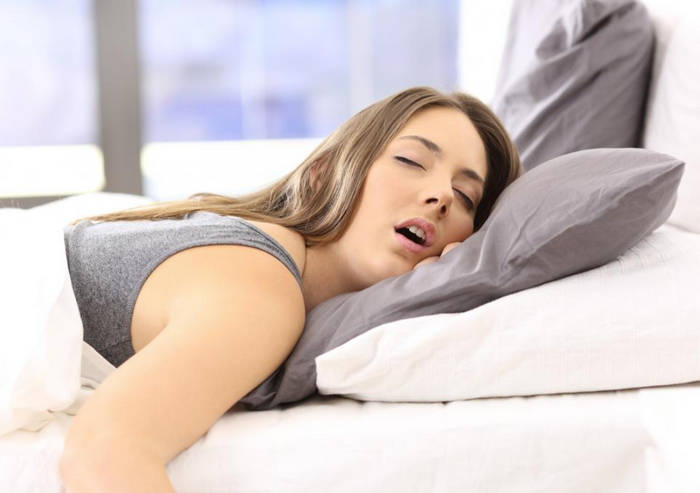How to stop saliva while sleeping
Saliva production is a natural and essential bodily function that aids in digestion, oral health, and overall wellness. However, excessive saliva production, particularly during sleep, can be a nuisance and cause discomfort. This condition, known as nocturnal drooling or sialorrhea, can lead to various issues, such as skin irritation, disturbed sleep, and embarrassment. Understanding the underlying causes and exploring effective strategies to manage and reduce saliva production while sleeping can significantly improve one’s quality of life. This essay delves into the reasons behind excessive saliva production during sleep and offers practical solutions to address this issue.

Causes of Excessive Saliva Production
- Sleep Position:
- One of the most common causes of drooling during sleep is the sleeping position. Sleeping on one’s side or stomach can cause saliva to pool in the mouth and eventually spill out. Gravity plays a significant role in this, making side and stomach sleepers more prone to drooling.
- Mouth Breathing:
- People who breathe through their mouths, whether due to nasal congestion, sleep apnea, or habit, are more likely to drool. Mouth breathing can cause the mouth to remain open, leading to increased evaporation of saliva and drooling.
- Neurological Disorders:
- Conditions such as Parkinson’s disease, cerebral palsy, and amyotrophic lateral sclerosis (ALS) can affect the muscles and nerves controlling saliva production and swallowing. These disorders can lead to excessive drooling.
- Medications:
- Certain medications, especially those affecting the central nervous system, can increase saliva production. Antipsychotics, anticholinergics, and medications for Alzheimer’s disease are known to cause sialorrhea as a side effect.
- Gastroesophageal Reflux Disease (GERD):
- GERD can cause an increase in saliva production as the body attempts to neutralize stomach acid. This increased production can result in excessive drooling, especially when lying down.
- Allergies and Infections:
- Allergies and upper respiratory infections can cause nasal congestion, forcing individuals to breathe through their mouths, which can lead to drooling.
- Dental and Oral Health Issues:
- Poor dental alignment, oral infections, or the presence of braces and dental appliances can interfere with normal swallowing, causing saliva to accumulate in the mouth.
Strategies to Stop Saliva While Sleeping
- Change Sleep Position:
- Adjusting sleep position can significantly reduce drooling. Training oneself to sleep on their back can help keep saliva from pooling and leaking out of the mouth. Using pillows to support the head and maintain this position can be beneficial.
- Treat Nasal Congestion:
- Addressing nasal congestion through the use of decongestants, antihistamines, or nasal sprays can facilitate nasal breathing, reducing the likelihood of mouth breathing and drooling.
- Manage GERD:
- For individuals with GERD, managing the condition through dietary changes, medications, and lifestyle modifications can reduce saliva production. Avoiding spicy and acidic foods before bedtime and sleeping with the head elevated can help control GERD symptoms.
- Use of Oral Appliances:
- Dentists can provide oral appliances that help keep the mouth closed or improve jaw alignment, reducing drooling. These devices can be particularly helpful for individuals with dental misalignment or those undergoing orthodontic treatment.
- Swallowing Therapy:
- Speech therapists can provide exercises and techniques to improve swallowing efficiency. These therapies can strengthen the muscles involved in swallowing and reduce saliva pooling in the mouth.
- Medication Adjustment:
- If medications are causing excessive saliva production, consulting with a healthcare provider to adjust the dosage or switch to an alternative medication can help manage the side effect.
- Botox Injections:
- In severe cases, Botox injections can be used to reduce saliva production. Botox works by temporarily paralyzing the muscles of the salivary glands, thereby decreasing saliva secretion. This treatment is typically administered by a healthcare professional.
- Maintain Good Oral Hygiene:
- Practicing good oral hygiene can prevent infections and other dental issues that contribute to excessive saliva production. Regular brushing, flossing, and dental check-ups are essential.
- Hydration and Diet:
- Staying hydrated can help regulate saliva production. Additionally, avoiding foods that stimulate saliva production, such as sour or spicy foods, can reduce nighttime drooling.
- Use of Absorbent Materials:
- Placing an absorbent cloth or towel on the pillow can help manage drooling and keep the face dry. Special pillowcases designed to wick moisture away from the skin can also be beneficial.
Psychological and Social Considerations
Nocturnal drooling can have psychological and social implications. Individuals who experience excessive drooling may feel embarrassed or self-conscious, affecting their social interactions and self-esteem. Addressing these concerns involves not only managing the physical aspect of drooling but also providing emotional support and reassurance. Educating individuals about the commonality of the condition and its treatable nature can alleviate anxiety and promote a proactive approach to seeking solutions.
Conclusion
Excessive saliva production during sleep, while often benign, can cause significant discomfort and social embarrassment. Understanding the various causes, ranging from sleep position and nasal congestion to neurological disorders and medications, is crucial in addressing the issue effectively. Implementing practical strategies such as changing sleep positions, treating underlying conditions, and utilizing oral appliances can greatly reduce or eliminate nocturnal drooling. Additionally, maintaining good oral hygiene and seeking professional medical advice for persistent cases ensures a comprehensive approach to managing this condition. By taking these steps, individuals can improve their sleep quality and overall well-being, leading to a more comfortable and confident life.
